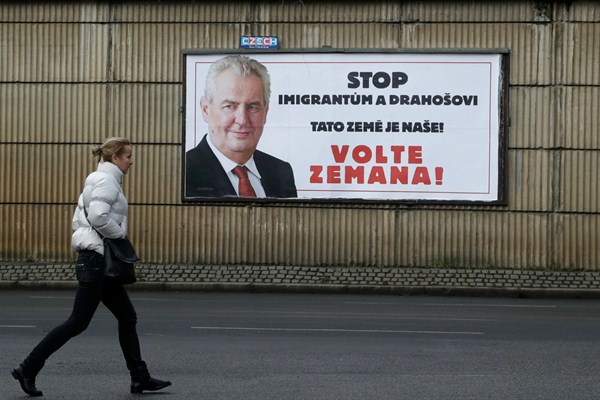PRAGUE—Czechs re-elected populist firebrand Milos Zeman in the second round of presidential elections late last week, in a race widely viewed as a referendum on the Czech Republic’s geopolitical orientation. Despite the return of Zeman to Prague Castle, from where he has railed against migrants and Islam, called for a referendum on the Czech Republic’s membership in the European Union and reached out to Russia and China, Czech foreign policy will nevertheless likely remain anchored in the country’s position as an EU and NATO member. While Zeman’s bluster attracts international headlines and enrages critics, the president’s influence on policy is limited.
Far more pressing is how his re-election affects the domestic scene, as the Czech Republic can now get on with escaping months of political stalemate.
In the battle for the largely ceremonial presidency, Zeman—a former prime minister and member of the center-left Czech Social Democratic Party whose crude performance as president over the past five years has shocked many Czechs—won with 51.4 percent of the vote. His challenger, the academic and independent political novice Jiri Drahos, flopped with just 48.6 percent. That was due in part to a bland campaign that struggled to do much more than stress that he was not Zeman.

